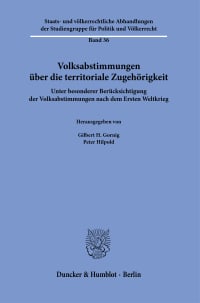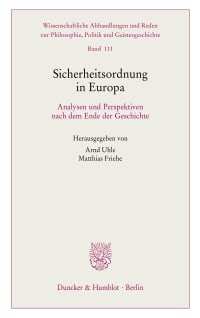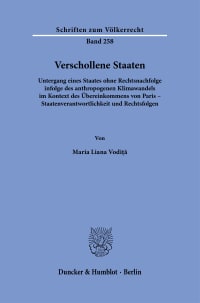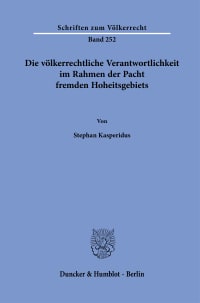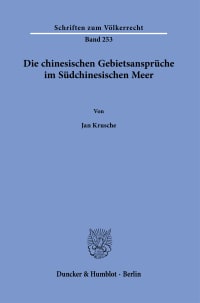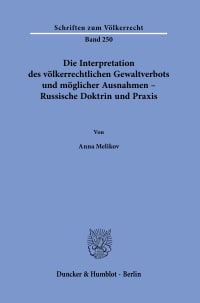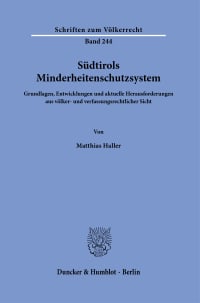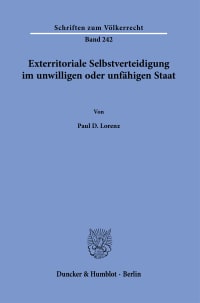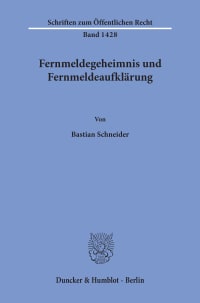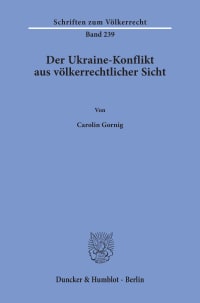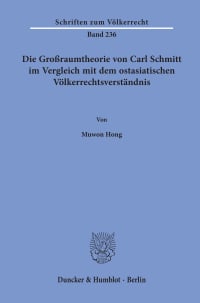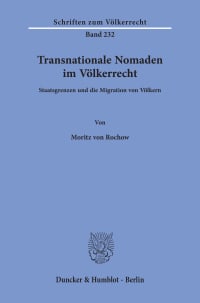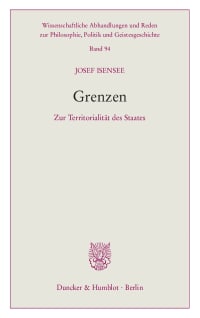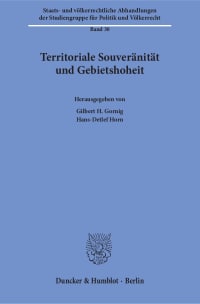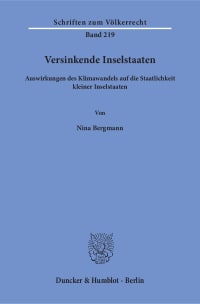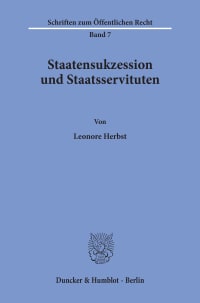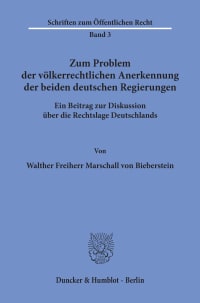Eine argumentationstheoretische Untersuchung
Description
»The Kosovo Advisory Proceedings of the International Court of Justice«
During its Kosovo Advisory Proceedings, the International Court of Justice and the disputing parties considered highly contentious questions relating to the legality of secession under international law. In-depth analysis of the positions advanced by the parties, and how the argumentative process unfolded, is the central focus of the present study, which uses the most recent developments in the field of argumentation theory to assess the proceedings based on a pragmatic and dialogical notion of argumentation. The study finds that the actors used five different »secession frames«, considers how those positions gained or lost ground during the proceedings, and assesses why one of them was ultimately endorsed by the Court in its Advisory Opinion.
Overview
1. Einleitung
Zur Untersuchung – Forschungsinteresse: Sezessionsrechtliche Desorientierung und völkerrechtliche Argumentation
2. Theoretische Grundlagen der Argumentationsanalyse
Problematisierung der völkerrechtlichen Argumentbegriffe – Zeichenpraxis als Grundlage der völkerrechtlichen Argumentation – Einführung der geltungsbezogenen Argumentationstheorie – Die geltungsbezogene Argumentationsanalyse
3. Argumentationsanalyse des Kosovo-Verfahrens
Von den Dokumenten des Kosovo-Verfahrens zu Argumentationsstrukturen – Die Sezession als Abspaltung des Territoriums – Die Sezession als Willensäußerung des Volkes – Die Sezession als faktische Staatsentstehung – Die Sezession als abnormale Situation – Die Sezession als Übergang des Hoheitstitels – Die Entscheidung durch den Gerichtshof
4. Fazit: Teilorientierung im Zustand der Desorientierung
Literatur- und Dokumentenverzeichnis
Urteils- und Stichwortverzeichnis

